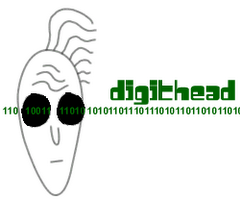Jack Dorsey's Square, a web 2.0 and mobile compliant version of PayPal, talks disruption but has already accepted money from VISA. It's a shrewd business model: build anything reasonably credible in the payments space and the odds of being bought out by one of the incumbents are about 1000 percent. Dwolla is a digital and mobile payments startup from Iowa, who's early funding came from a credit union.
In his book The PayPal Wars, early PayPal marketing guru Eric M. Jackson recounts a stirring speech Thiel gave to the company's early staff.
"PayPal will give citizens worldwide more direct control over their currencies than they ever had before," Thiel said. "It will be nearly impossible for corrupt governments to steal wealth from their people through their old means because if they try the people will switch to dollars or pounds or yen, in effect dumping the worthless local currency for something more secure."
Unfortunately, that vision never panned out. PayPal thrived when it came to innovating and adapting to stay a step ahead of its early competitors. But the company proved less adept at slaying its more formidable antagonists: Lawyers and politicians.
Startups aren't the only ones who want a piece of VISA's 37% profit margin on 8.6 billion in revenue. Big tech companies, like Apple and Google are getting into the payments game, too. Google just rolled out Google wallet, stirring privacy concerns and getting sued by PayPal.
These days, the wild-eyed radicals look past these tame corporate offerings to Bitcoin, a peer to peer digital currency created in 2009 by the mysterious Satoshi Nakamoto. Bitcoin relies on public key cryptography and digital signatures to guarantee payment and receipt. Satoshi's key insight was the means of validating transactions. Rather than clearing through a central authority, the system validates transactions through a distributed proof-of-work system, relying on the majority of honest nodes on the peer to peer network to solve cryptographic puzzles faster than any attacker.
The idea of an unregulated decentralized currency appeals to some, but don't expect the government to like it. The potential for black markets and money laundering has already drawn scrutiny and calls for a crack down. They're undoubtedly wondering how to tax it.
Possibly a bigger threat, Bitcoin has also attracted the attention of thieves. Last week, Mt. Gox, the currency's largest exchange, was hacked. The system relies critically on the security of end-user machines, a shaky proposition. One Bitcoin user, aptly named, allinvain, reported $500,000 worth stolen. A Bitcoin harvesting trojan has already been spotted in the wild.
Whether Bitcoin can overcome these problems or not, it's sure to be a wild ride. Bitcoin's technical underpinnings are fascinating and an impressive ecosystem has quickly sprung up it. There are dealers, exchanges, an escrow service, charities and a place to keep your treasure horde online.
I'm curious to see how much of the existing financial system gets ported to Bitcoin. Is fractional reserve banking in Bitcoin possible? Or how about securities denominated in Bitcoin? If you're a sceptic, can you sell short? One thing I love about Bitcoin is the mixture of engineering and economics, and even more, the engineering of economics. Of course, this comes with all the caveats and warnings of version 0.1.
The future of money is here. Are we read for it?











 R Bloggers
R Bloggers
What an interesting article! Yes, it is the future. Online transactions are fast becoming the most popular way to do business - and it is a multi-billion industry.
ReplyDeleteSarah Lacy of TechCrunch asks, Exactly How Screwed Is PayPal? (Hint: Very)
ReplyDelete